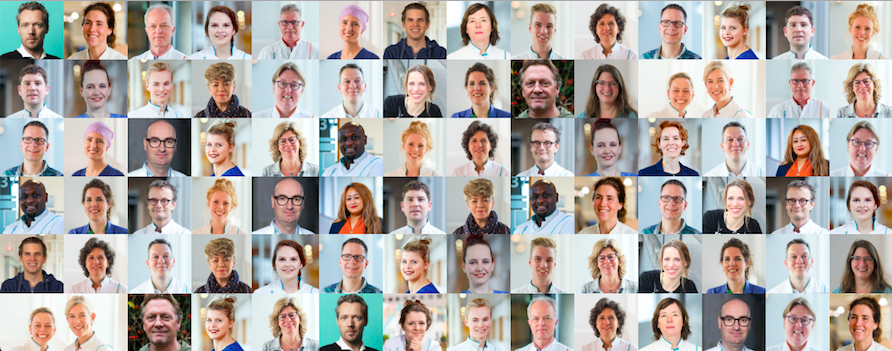PhD Student 'Deep Learning in Medical Image Analysis'
PhD Student 'Deep Learning in Medical Image Analysis'
You cannot apply for this job anymore (deadline was 6 Jul 2017).
Browse the current job offers or choose an item in the top navigation above.
Job description
Imaging is a central part of medicine. Computers can potentially extract more information from images, more reliably, and more accurately than human readers. This is exemplified by recent results in deep learning, currently the most active research area within machine learning and computer vision, and the topic of 300 mostly recent papers in medical image analysis.
The Domain Applied and Engineering Sciences of the Dutch science foundation NWO has funded a large programme on Deep Learning in Medical Image Analysis. Sixteen researchers at five Dutch academic centers will work in close collaboration with seven companies on various challenges that currently limit applicability of deep learning: high dimensionality of the data, availability of labeled data, and sensitivity to differences in acquisition protocols.
In our group we have four fully funded positions for research on detection and quantification of lung disease in chest computed tomography, detection of breast cancer on mammograms and breast tomosythesis, analysis of multiple types of abnormalities in chest radiographs, and retinal image analysis with fundus photography and optical coherence tomography. Collaborating companies are Thirona, ScreenPoint and Delft Imaging Systems. We closely work with clinicians in all projects, and have already collected large data sets with expert annotations. A team of scientific programmers is supporting our deep learning research and we have a large cluster of computers equipped with high-end GPUs for large scale experimentation.
Specifications
- max. 36 hours per week
- Nijmegen View on Google Maps
Requirements
Positions can be filled by either PhD students or postdocs. Here you can find our postdoc position.
You should be a creative and enthusiastic researcher with a MSc degree in Computer Science, Data Science, Physics, Engineering or Biomedical Sciences or similar, with a clear interest in machine learning, deep learning, image analysis and an affinity with medical applications. Good communication skills and expertise in software development, preferably in Python/C++, are essential. Experience with deep learning is a pre.
Conditions of employment
Fixed-term contract: 1 year, with an extend of 3 years.
Terms of employment
PhD positions has the standard salary and secondary conditions for PhD students in the Netherlands, Scale 10A: max €40116 gross per year at full employment (incl. vacation bonus and end of year payments). Your performance will be evaluated after 1 year. If the evaluation is positive, the contract will be extended by 3 years. The research should result in a PhD thesis. See also this page with some general information about doing a PhD in our group.
Employer
Radboudumc (university medical center)
The Radboudumc center advances human knowledge by conducting biomedical, translational and clinical research in order to improve wellbeing.
Our key strength is medical life-sciences and clinical practice, with an impressive infrastructure comprising state-of-the-art technology platforms and (translational) research facilities. The Radboudumc is therefore uniquely positioned in the emerging Euregio and Dutch healthcare infrastructure to play a leading role in the new healthcare paradigm of prediction, prevention and personalised medicine.
The Radboudumc focuses on scientific health challenges of today, with an eye on emerging diseases of the future.
Our mission: ‘to have a significant impact on healthcare’.
Department
The Diagnostic Image Analysis Group (DIAG) is a research division of the Department of Radiology and Nuclear Medicine of the Radboud University Medical Center Nijmegen. The focus of the Diagnostic Image Analysis group is the development and validation of novel methods in a broad range of medical imaging applications. Research topics include image analysis, image segmentation, machine learning, and the design of decision support systems. Application areas include neuro, breast, prostate, lung and retina imaging and digital pathology. Key to the success of the group is close cooperation with clinicians. Currently the group consists of around 40 researchers. Check our deep learning paper overview to get an idea of our work in this field.
Specifications
- PhD; Research, development, innovation
- Natural sciences; Health
- max. 36 hours per week
- University graduate
:fill(white)/logos/umcr-en-wide.png)
